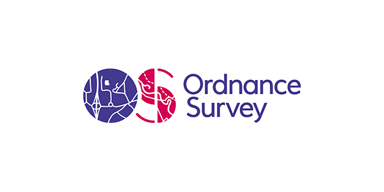Ordnance Survey at COP28
Donna Lyndsay, Strategic Market Lead at Ordnance Survey, talks about her aspirations for COP28 and how geospatial data is playing a vital role in tackling climate change
When I first attended COP three years ago, I was involved in the space sector and that began our thinking about how we use Earth Observation (EO) data within OS. That has evolved to a series of propositions and thinking around a blend of EO and geospatial data. Over the last three years, we have seen a greater recognition of the role geospatial data can play and how geographic context is the key to unlocking real value from EO data.
Supply Chain Data Partnership
When OS went to COP last year, we announced the Supply Chain Data Partnership (SCDP) with a series of large corporate partners. The partnership aim is to understand whether we can verify location well enough to be used across supply chains - to help understand the environmental impact of that feature or asset or where those commodities are coming from.
We've now evolved that into a proof of concept, which we're testing out across supply chains, where location is absolutely at the heart of this. If we don’t know where things are coming from, we don't know what impact they have; and if we don’t know their impact, we are not able to prevent harm to the planet.
"The main thing I'd like to achieve at COP is to make sure geography isn't forgotten. There’s a lot of technology thrown at trying to solve big sustainability issues; I want to make sure OS can help using the core strengths we have, because location is really at the heart of solving some of these."
OS progression since COP27
OS has had several successes since COP last year. First of all is the global traction we’ve achieved with the SCDP. OS is developing as a thought leader on how to apply location to supply chains. That's leading to all sorts of exciting conversations with corporations and financial institutions.
Secondly, we have been working on a local proposition with partners in the UK, like Natural England, Durham University and Deloitte, to understand how we can monitor, report and verify carbon sequestration and how that generates high integrity carbon credits. In the last 12 months we’ve seen a closer link between EO and Geo; there has been a leap in understanding how geospatial can bring context and detail to EO data.
Our recent work with Satellite Vu and heat mapping is a great example of what accurate location data can deliver. This detail allows greater insight and decision making and makes the data accessible to non-experts for a rapid response, and targeting when dangerous heat events happen.
Looking ahead to 2024
Looking ahead, we’re going to see a higher demand for verification services. Markets want to see and share data that can be trusted; the wrong data has real reputational and financial implications. So having that surety around the quality of the data coming in is important. OS has surveyors who collect data and it’s of a high level of quality and accuracy. We are going to see a lot of other people now turning that data collection into crowd verification services and applications. But how do we make sure we can trust crowdsourcing? That's where we come in - in terms of data governance and making sure when people are providing verification services, they are doing it well enough and with assured confidence.
There are several things we can all do when considering sustainability challenges – whether it’s personally, corporately, nationally or internationally reducing our carbon footprint. We need to consider how we solve our transport challenges in terms of making sure that people are using the road network efficiently. But also, pollution, biodiversity, urban heating and coastal erosion for example, all require a location-based approach.
OS has a fundamental role to make sure location data can support these key needs, particularly around building resilience and adaptation, and making sure that we use finite resources effectively. We are all on one planet, so we need to make sure we use it appropriately. We must make sure we are not continually harvesting it for current needs without thinking about the future.


Our highly accurate geospatial data and printed maps help individuals, governments and companies to understand the world, both in Britain and overseas.